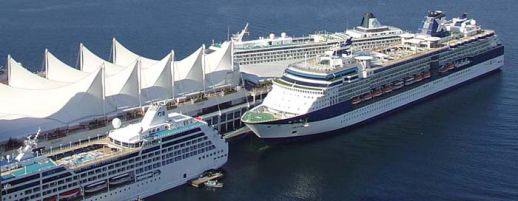The rise in demand for air travel is one of the most serious environmental threats facing the world, according to a British report issued this past weekend. The report says that government plans for expansion of airport facilities are in direct conflict with targets to reduce greenhouse gases, stating that as polluting gases from aircraft exhaust fumes increase further, rapid degradation of the environment will take place.
Friends of the Earth claim this will push up the aviation contribution to carbon dioxide (a greenhouse gas) emissions to 10-12% by 2020 — from the current 5%.
“We are at war with the Earth itself,” says Cambridge University Professor James Lovelock. “Our goal should be the cessation of fossil fuel consumption as quickly as possible.”
In a BBC report (RealPlayer required) on aviation greenhouse gases, the Stockholm Institute is quoted as saying …
“For too long, airlines have been largely exempt from efforts to combat global warming. The world’s airlines currently create 300 million tonnes of greenhouse gases each year, and that figure is rising fast. By the middle of the century, airlines will account for 15% of the total contribution to global warming.”
The head of one of the world’s biggest oil giants — Ron Oxburgh, Chairman of Shell Oil — in an interview with The Guardian, has said unless carbon dioxide emissions are dealt with, he sees “very little hope for the world.”
“No one can be comfortable at the prospect of continuing to pump out the amounts of carbon dioxide that we are at present,” Lord Oxburgh told the Guardian. “People are going to go on allowing this atmospheric carbon dioxide to build up, with consequences that we really can’t predict, but are probably not good.”
The Kyoto Treaty was drawn up in Kyoto, Japan, in 1997 to implement the United Nations Framework Convention for Climate Change. It legally binds industrialized nations to reduce worldwide emissions of greenhouse gases by an average of 5.2% below their 1990 levels over the next decade.
After the U.S. pulled out in March 2001, the treaty was left shattered. A compromise was reached four months later, with nearly 180 nations (including Canada) opting for a scaled-down version of the treaty, but President Bush has stated that the U.S. will never sign it, in spite of dire warnings from within his own government.



